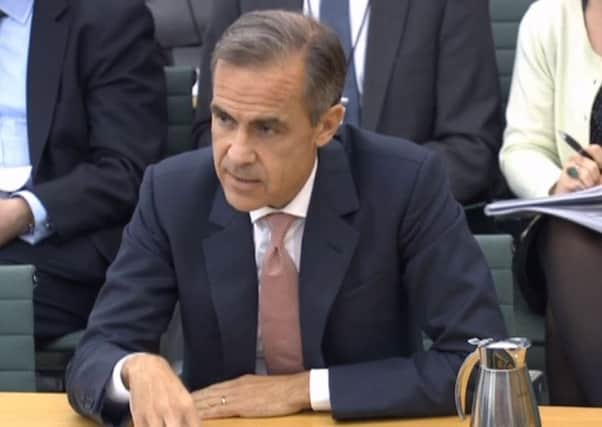Carney defends ‘guilty until proven innocent’ rethink


In a hearing with MPs on the Treasury select committee, Carney claimed the changes being made under the new Bank of England Bill would be a “major innovation” and will herald a cultural shift in the banking industry.
His comments come after accusations that the Bank and Treasury had bowed down to intense lobbying by major lenders, shelving the so-called reverse burden of proof rule.
Advertisement
Hide AdAdvertisement
Hide AdThe plans would have seen bankers forced to prove they did not know about wrongdoing within their institution or had tried to prevent it, but have instead been replaced with a “duty of responsibility”.
It will now be up to regulators to prove managers failed to take reasonable action to prevent breaches or failures.
Carney said the Bank was concerned the previous plans would allow banks legal loopholes to side-step accountability, but said the changes will ensure there is a change in culture.
He said: “If you are running a bank you are responsible for the big activities within that bank. If you are not comfortable with this responsibility then you shouldn’t be in that role.”
The Bank announced last week that the new senior managers and certification regime, due in March, would be extended to all financial services firms by 2018. This will include insurers, asset managers and all investment firms.
It is seen as an attempt to rebuild public trust in an industry blighted by numerous scandals in recent years, although it is thought the City has claimed a victory in seeing the burden of proof rules watered down.
This follows other recent changes seen as appeasing the City, with the banking levy being reduced in favour of a less onerous banking surcharge, as well as changes in proposals to ring-fence retail operations from riskier investment banking.
Deputy governor Andrew Bailey also defended the rule change in a separate appearance in front of the Commons committee.
Advertisement
Hide AdAdvertisement
Hide AdFacing accusations from Labour MP John Mann that he had “changed his tune” on the burden of proof rule, Bailey said the “guilty until proven innocent” plans may not work as intended.
Mann said: “Lawyers have a vested interest and that vested interest has won.”
But Bailey – who is also chief executive of the Bank’s regulation arm, the Prudential Regulation Authority – claimed it was “not a watering down”.
“If I thought that was happening, I would tell you,” he said.
“I don’t want a regulation which has a flaw in it which they (banks and lawyers) could exploit,” he added.
Carney also told MPs he believed the tougher rules on accountability should not put the right people off working in the UK financial services industry.
“If there’s a director or someone who is considering coming to a position of responsibility in London and they’re uncomfortable with taking those responsibilities then we are not interested in them fulfilling these roles,” he said.